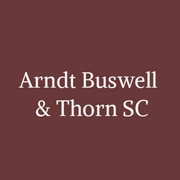
If you have a hard time making payments to different lenders every month, consolidation could be the answer. Debt consolidation allows you to merge two or more balances into one account, so you only have to make a single monthly payment. In addition to simplifying your financial situation, this could save a considerable amount of money because the new account will likely have a lower interest rate. Debt consolidation isn’t the right approach for every scenario, however; sometimes, it’s best to declare bankruptcy.
When to Consider Debt Consolidation
 Unlike bankruptcy, debt consolidation does not actually eliminate what you owe. Instead, it provides the breathing room needed to regain your financial footing. It’s ideal for those who have the funds to pay back their debts but struggle to stay on top of their various monthly obligations. As long as your debt is manageable and you have decent credit, it might be worth pursuing consolidation.
Unlike bankruptcy, debt consolidation does not actually eliminate what you owe. Instead, it provides the breathing room needed to regain your financial footing. It’s ideal for those who have the funds to pay back their debts but struggle to stay on top of their various monthly obligations. As long as your debt is manageable and you have decent credit, it might be worth pursuing consolidation.
When to Consider Other Options
If you don’t have enough income to make the minimum monthly payments, debt consolidation will not help. In such a scenario, bankruptcy might end up being the answer. You should also avoid consolidation if it means exchanging unsecured debt for secured debt—by paying off credit cards with a home equity loan, for example. This will only serve to put the house at risk if you are unable to make payments. Finally, it’s unwise to pursue consolidation if you amassed the debt because of a spending problem. Until the family’s spending is under control, shuffling around debt will just make it easier to accumulate even more.
To discuss your situation with a seasoned bankruptcy attorney and determine whether debt consolidation is the answer, turn to Arndt Buswell & Thorn SC. Located in Sparta, WI, this full-service firm has been providing unparalleled counsel for clients throughout Monroe County since 1991. Because they offer a broad range of legal services, they strive to build a lasting relationship with each client. Whether your debts are in collections or you’re facing a family law dispute, you can turn to them for guidance. To view all their practice areas, visit their website. To request an initial consultation, call (608) 269-1200.
About the Business
Have a question? Ask the experts!
Send your question

